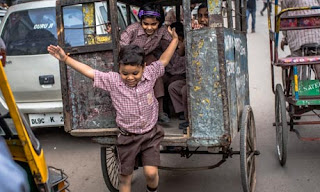[MLE] Article in Guardian "Language exodus reshapes India's schools"

Dear MultiLingual Education friends, The Guardian had last week an article on the role of English in the Indian education system. A few quotes: "More and more across India, parents are forsaking educating their kids in their mother tongue in favour of English. Despite warnings from educationalists that a child's cognitive development is affected by early schooling in an unfamiliar language, there has been an exponential increase during the last decade in English-medium schools in the country. The latest data compiled by the National University of Education, Planning and Administration (NUEPA) shows that the number of children studying in English-medium schools has increased by a staggering 274% between 2003 and 2011, to over 20 million students." "When the standard of teaching in a regional language school is good, the difference ...


